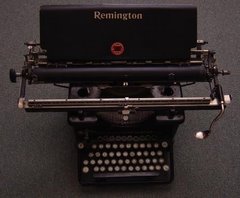
Different by Degrees
C.S. Lewis in his book “An Experiment in Criticism” covers some of the same ground that Harold Bloom does in his book “How to Read and Why. Bloom answers the question in part saying, “because it matters”. Lewis says that reading admits us to the experiences of others. He suggests that we can read or look at art to find what satisfies us or to experience what the writer or artist saw. He tells us in this way we become what we were not before, seeing through others eyes.
Lewis tells us that reading is a pleasure and it is good but adds that this "good" can be just a hedonistic value. Then he dissects that value by telling us that it does not have to be logical or what we may believe to be true or to be good. In the first chapter he compares buying a book to someone who buys a picture. One person might buy the picture to cover a bare spot on the wall and then after a week or two the pictures become mostly invisible to them. Another person would buy a picture, live with it, and actually feed off of it, for years. The book helps to understand what it might mean to "feed off" or even “rest in” what the book said. He suggests that to do this with your reading allows you to become or see what you had not found before. He likens this condition to a Greek poem saying, "I see with a myriad of eyes, but it is still I who see". The book has eleven chapters and an epilogue. Many of these chapters deal with the types of things men read and then in the final chapter the question of judging literary tastes by the type of books read is discussed. The approach is normally to judge by what a person reads. This is reversed. We are asked to judge literature by the "way" men read it. If it is how we read rather than what we read, then we are free to really become, as he suggests, "a thousand men and yet remain myself". Rather than pushing a point of view, something it could be assumed that a Christian writer would do, this book pushes the idea of real agency of reading choice. He then shows how pleasurable the experience can be but the pleasure is not dependent in a specific point of view but in learning to experience the point of view.

The question might be is the difference in the eye of the beholder? If so can we let someone else behold and still experience. See through others eyes.












1 comment:
good post today :)
Where did you get that 4 seasons picture? I love it and would like to do a scrapbooklady post about it.
Post a Comment